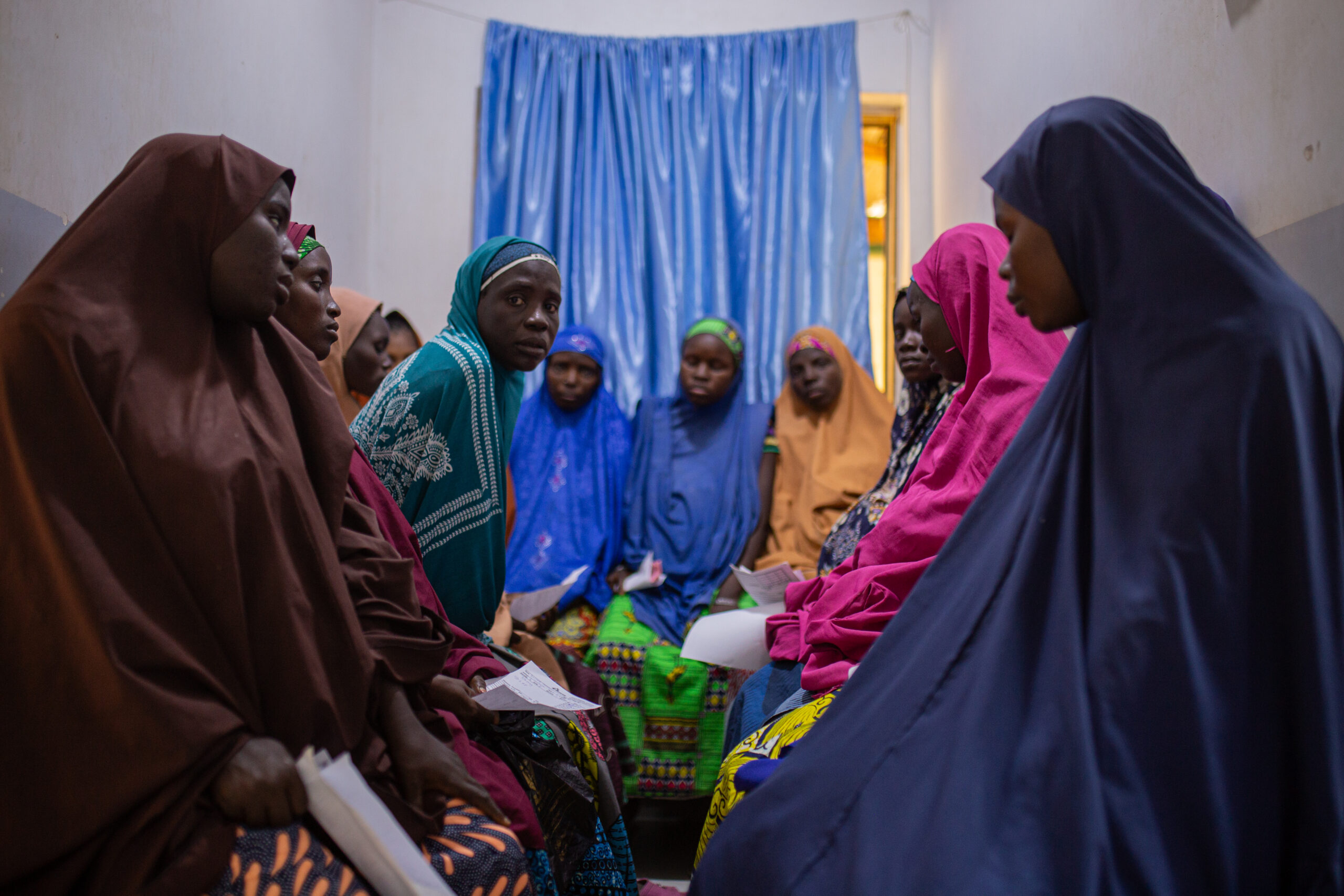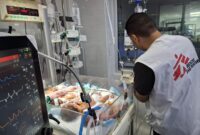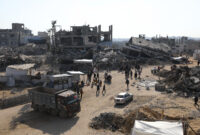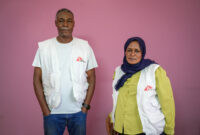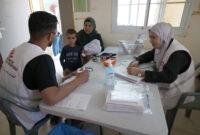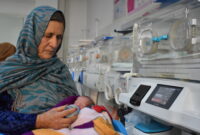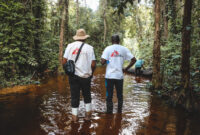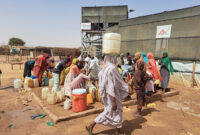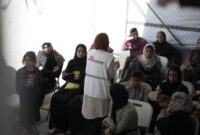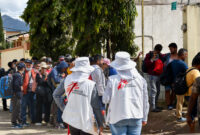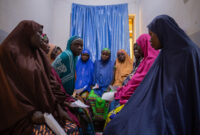Nigeria: in Jahun, MSF supports women affected by obstetric fistulas in their recovery
Women in recovery find healing through surgery, rehabilitation and solidarity.
At Jahun general hospital in northern Nigeria, Doctors Without Borders/Médecins Sans Frontières (MSF) teams provide reconstructive surgery, mental health care and rehabilitation for women with obstetric fistulas. Around 300 women benefit from these services every year.
“We don’t see fistulas in [high income] countries because there’s access to cesarean sections or suction cups, but here in Nigeria, the baby could be stuck for several days. The prolonged pressure of the baby’s head on the woman’s pelvis creates necrosis [the death of cells in the body’s tissues], which is the origin of obstetric fistula,” says Clémence Chbat, MSF medical advisor for women’s health.
“We teach women to regain control of their bodily functions, to control their urination and bowel movements and consequently restore their dignity. It’s an essential step towards recovery.”
Elizabeth Braga, physiotherapist with the MSF Foundation
Obstetric fistulas are one of the most serious after-effects of long, complicated deliveries without access to care. These traumatic deliveries can last up to five days and, in 90 per cent of cases, women give birth to stillborn babies. They can also lead to fistulas, which consist of a perforation between the vagina and the bladder and/or rectum, creating permanent incontinence and severely impacting women’s quality of life.
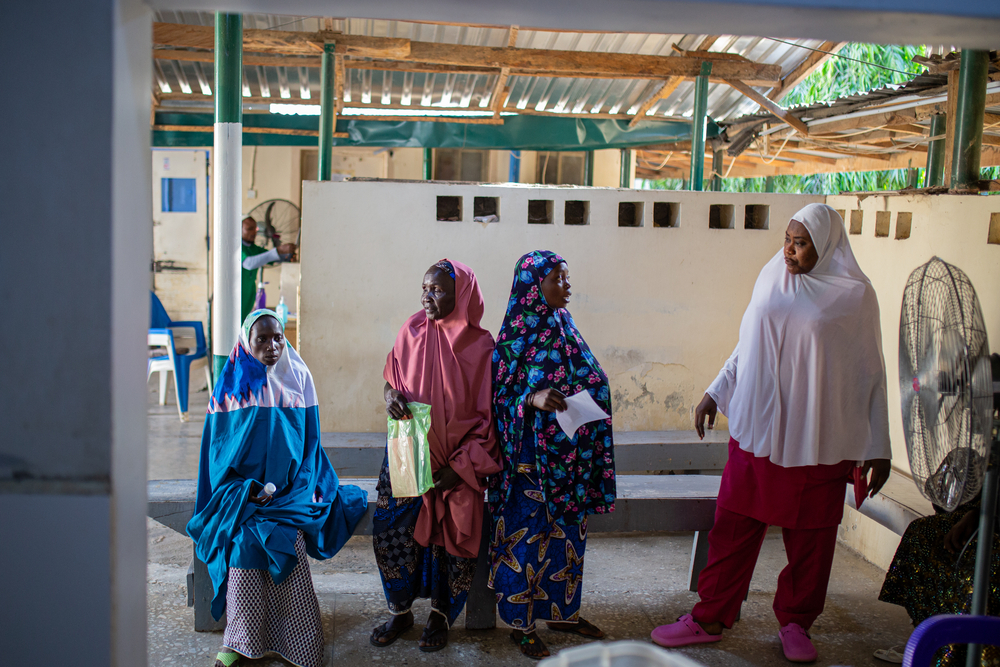
Healing with care and community
The 55-bed fistula ward at the MSF-supported Jahun general hospital is a place of respite for patients’ during what is often two to three months of hospitalization. Strong bonds of solidarity and sisterhood are forged here.
“The fistula unit is a pleasant place where women can talk about what they’re going through,” says Chbat. “Because they have experienced the same difficulties, they form a special relationship. Together, they do their best to heal from their wounds. It’s a place where you can see a lot of hope.”
Each patient may require one or more reconstructive surgical procedures to repair their fistula. Since 2024, the MSF Foundation has complemented this care by setting up women’s health rehabilitation activities and training local physiotherapists. “We teach women to regain control of their bodily functions, to control their urination and bowel movements and consequently restore their dignity,” says Elizabeth Braga, physiotherapist with the MSF Foundation. “It’s an essential step towards recovery.”
Once a week, the ward’s residents organize “Happy Wednesdays.” These are days during which they make handicrafts, jewelry or hats, organize singing or basketball games, dress up and use perfumes – all different ways of making them feel strong and independent again.
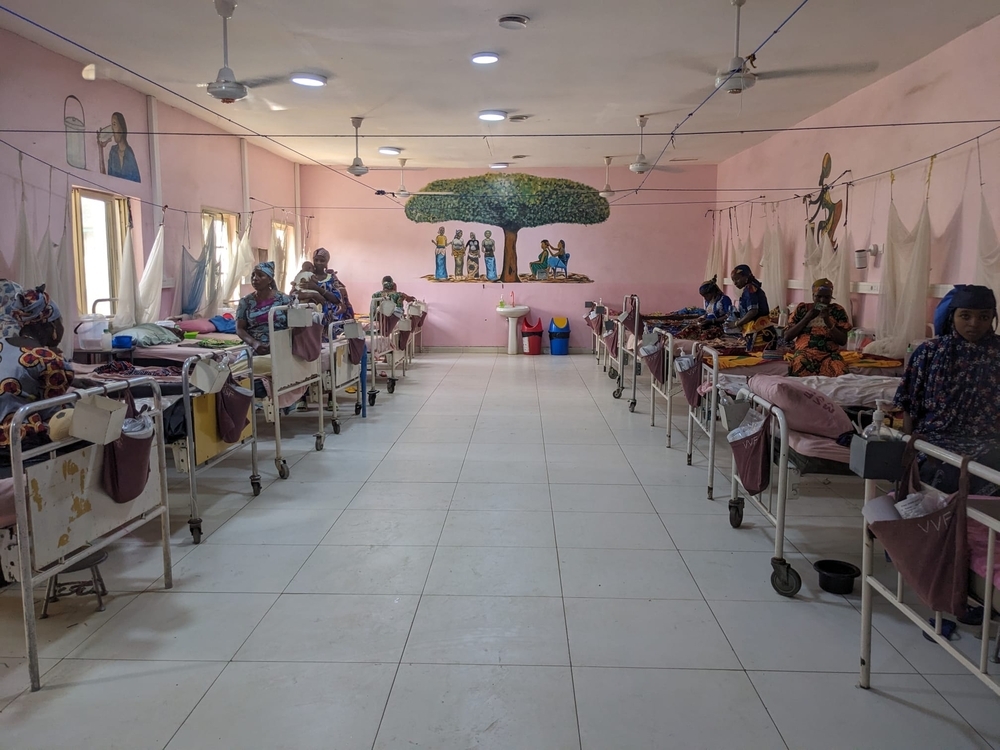
The impacts of obstetric fistulas
Obstetric fistulas are a serious injury in themselves, affecting women’s bodies and dignity, but they are also the result and cause of traumatic events and consequences.
The risk of complicated childbirth, and therefore of fistulas, is increased when a woman’s pelvis is too small to allow the baby to pass through. This can happen when girls who are younger than 15 become pregnant, or when the woman giving birth has suffered from malnutrition and stunted growth in childhood.
Fistulas can also lead to complications such as infection or infertility. The permanent incontinence they cause women is often the pretext for stigmatization, exclusion from their communities or divorce from their husbands. It can be the cause of psychological disorders such as depression.
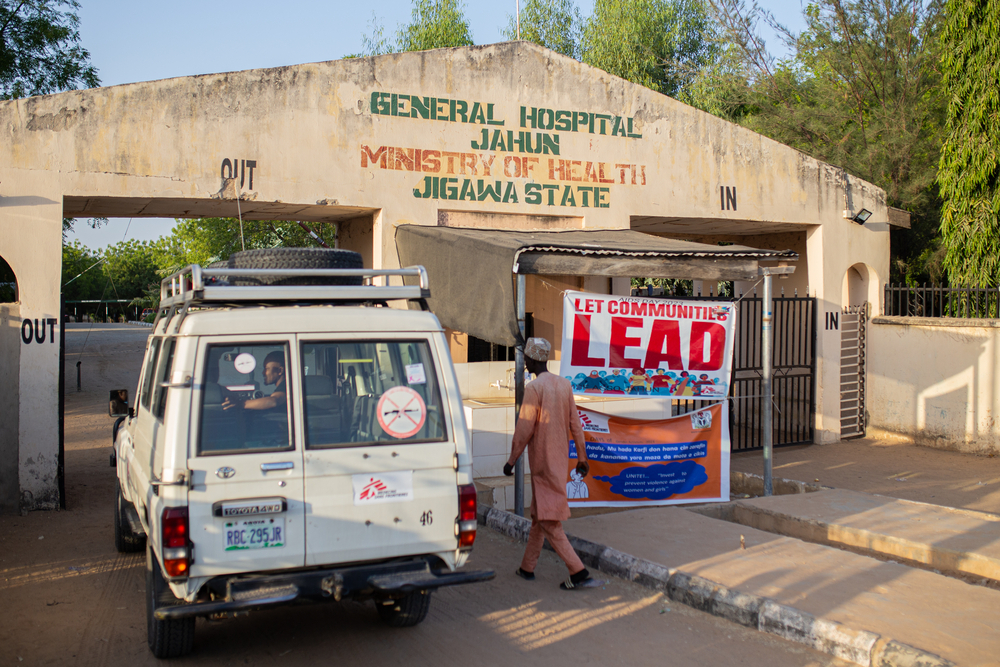
The importance of education and access to healthcare
Efforts to eradicate fistulas need to happen on both an individual and a structural level
“First of all, we need to raise awareness among those concerned – mainly women who are about to give birth, but also their husbands, mothers-in-law, birth attendants and religious leaders – of the issue of safe childbirth and the need for rapid access to care in the event of complications, no later than after 24 hours of labour,” says Chbat. “We also advise them to set aside the necessary funds in advance to pay for transport to the nearest hospital, as this unfortunately remains a real obstacle for many women.”
In addition to individual action, work to eradicate this injury must ensure that women have access to well-equipped health structures and trained professionals during pregnancy and childbirth. This can only happen if there is political will, community commitment and sustainable investment in women’s health.
In addition to running the fistula service, MSF has been supporting the maternity unit at Jahun general hospital and four smaller maternity units in Aujara, Miga, Taura and Jahun since 2008. Some 20,000 deliveries take place here every year.
